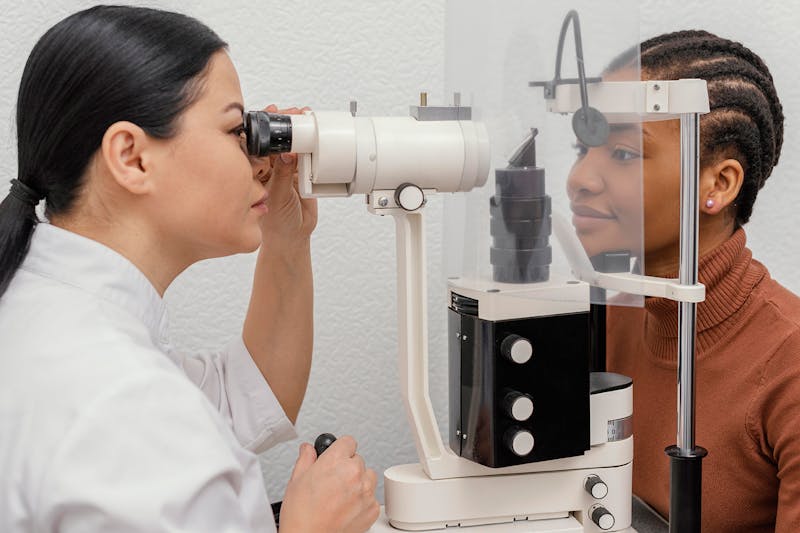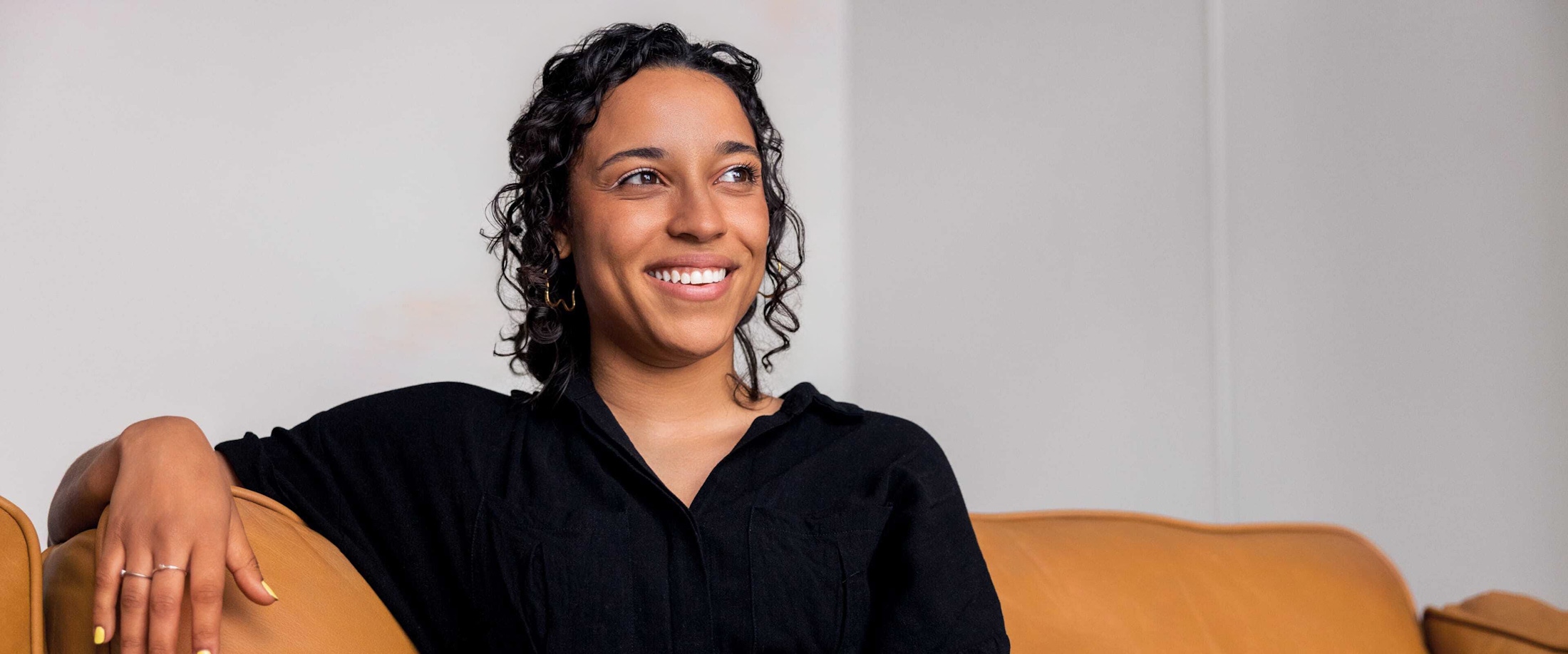
What to Expect During a LASIK Consultation
If you’re interested in getting LASIK eye surgery to correct your vision, one of the first things you’ll do is schedule a LASIK consultation with an eye surgeon. However, understanding proper LASIK consultation preparation and what to ask in a LASIK consultation might feel a bit confusing at first. If you’re wondering what do they do at a LASIK consultation, we’re here to guide you through the process and set realistic expectations.
What Happens at a LASIK Consultation?
At a LASIK consultation, your eye surgeon will gather all of the necessary information about your general health and your eyes to provide accurate guidance for your best vision correction option. This will require a thorough eye exam, which can take place before your consultation with your regular eye doctor, or during your consultation with your surgeon.
This comprehensive eye exam will give your surgeon necessary measurements and allow them to make assessments about the health of your eyes and your vision needs. Based on this information, your surgeon will make a recommendation for your ideal vision correction solution. This will include assessing whether you are a good candidate for LASIK surgery as well as how to adapt your LASIK surgery to your needs.
You’ll also discuss the basics of the surgery and what to expect on the day of the procedure. Your surgeon will also tell you how to prepare in the weeks and days before your surgery and how to plan for recovery afterward. Finally, they will provide any details that are unique to you and your eyes, and the cost of the procedure for you.
What to expect from your eye exam
Your eye exam will help your eye surgeon adapt your LASIK surgery to your unique eyes. As such, your eye exam may include:
- Corneal exam: This digital scan allows your doctor to assess the curve, thickness, and shape of your corneal tissue, as well as assessing the composition and volume of your tear film.
- Dilated eye exam: Special eye drops are used to dilate your pupils, allowing your doctor to see your lens and retina. You may have additional refraction assessments while your eye is dilated.
- Measurements: Your eye doctor will measure the various dimensions of your eye, including the length and width, as well as measuring the size of your pupil.
- Refraction assessment: This will occur via manual refraction with a phoropter (the lenses you look through and tell your doctor which is clearer) as well as with digital analyzers that measure how light scatters in your eye. Together, these will give your doctor an accurate reading of your current prescription, your eyes’ ability to focus, and any conditions that might impact your quality of vision.
- Screening for eye conditions: It’s important to check for signs of allergies, cataracts, diabetes, dry eye, glaucoma, macular degeneration, and more to ensure that your eyes are healthy enough for LASIK. The health of your eyelids will also be assessed.
If you had your eye exam at your eye doctor’s office, your eye surgeon may need to conduct certain additional measurements themselves. This will include a test to determine which eye is dominant.
Most LASIK surgeons also take wavefront measurements to check for higher-order aberrations. Wavefront mapping can help eye surgeons create a more precise and personalized treatment plan that addresses your unique needs. From there, your eye surgeon will also be able to give you a clear idea of how much your LASIK operation will cost. While custom LASIK is often more expensive than conventional LASIK, it is also more personalized and can provide better results.
LASIK Consultation Preparation: What To Ask in a LASIK Consultation
Since your LASIK consultation will include both an exam and a discussion of your vision needs, it’s helpful to be prepared with questions you might have beforehand. Asking the right questions not only helps you determine if this eye surgeon is the right provider for you, but it also helps you understand the procedure a bit better.
Here’s what to ask in a LASIK consultation:
How will you determine whether I am a good candidate for LASIK?
Your eye surgeon should be open and honest that not everyone is a good candidate for LASIK. They should clearly outline how they will make that determination and what your options will be if you aren’t a good candidate.
How much experience does my eye surgeon have with procedures like mine?
You want an expert eye surgeon with significant experience performing LASIK procedures that are similar to yours. If yours will be a custom procedure, ask for specifics about how your eye surgeon has addressed similar vision correction in the past.
What technology will be used for my procedure and why?
It’s helpful to know what kind of technology your surgeon will use and how long they have been using it. If it is a bladeless procedure, ask about the benefits of bladeless surgery. You may also want to ask why they feel this technology is a good match for your vision needs.
What will I need to do to prepare for LASIK surgery?
Each patient will have slightly different preparation instructions before LASIK, depending on whether they wear contact lenses, products they use on their eyes and face, and their activities and lifestyle.
What should I expect from LASIK recovery?
While the LASIK recovery timeline is relatively quick, there are some precautions you’ll need to take to protect your corneas while they heal. You won’t be able to drive for the first day or two until your surgeon gives you the go-ahead. You’ll also need to wear protective shields for a short period and use special eye drops. Again, your specific instructions will be unique to your eyes and lifestyle.
What risks and side effects should I be aware of?
There are some general risks and side effects that everyone should be aware of, and your surgeon shouldn’t hesitate to inform you about them. In addition, your health and your unique eyes may mean that you may need to be prepared for specific side effects.
How much does LASIK cost?
The cost of LASIK varies depending on your specific vision correction needs, as well as whether you will be getting a custom LASIK treatment. At the end of your consultation, your surgeon will be able to tell you what your procedure will cost you.
How Your LASIK Consultation Helps Ensure Great Results
Ultimately, a LASIK consultation is a vital aspect of ensuring that you get the right type of treatment for your eyes. Additionally, this consultation will help ensure that your eye surgeon knows exactly what you and your eyes need, so you get the best vision correction results possible.
In some cases, your eye surgeon may determine that LASIK is not right for you and your eyes. However, the information they gather during the consultation will help them make other possible recommendations, like PRK, that may suit your eyes and vision needs better. Your eye surgeon will make the recommendation they feel is best suited to your needs to ensure that you get the excellent vision results you want.
Schedule Your Consultation with Dello Russo Laser Vision
Now that you know what to expect from this first appointment with your eye surgeon, as well as what to ask in a LASIK consultation, you’re ready to schedule yours! Dello Russo Laser Vision invites you to make an appointment at one of our four locations to begin your journey toward improved vision today. We are dedicated to providing you with warm, friendly, professional service that is stress-free and tailored to your needs. We work hard to ensure that your experience feels easy, efficient, and safe every step of the way.
Ready to get started? Our World Class LASIK surgeons are here to help answer your questions so that you feel prepared and informed before your procedure.
Contact us by phone at (855) 646-2020, or through our website to schedule your complimentary initial consultation today. We look forward to helping you soon!
